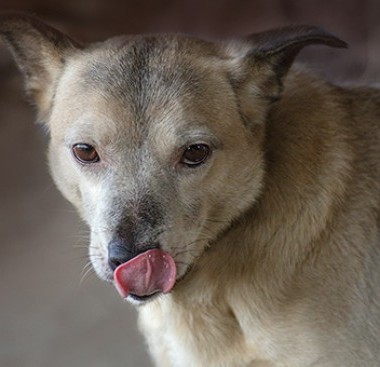Colorado Task Force Found No Need for Wolfdog Ban
By: Staff Date: 01/9/2012 Category: | Animal Legislation |
Michigan lawmakers are driving full speed ahead to ban wolfdogs in spite of exhaustive study done in other areas that proves such laws are counterproductive as well as unfair to responsible owners and breeders of healthy, well-behaved pets.
In 1997, the Colorado Legislature considered a bill that would ban wolf hybrids in the state. In light of opposition to the bill, lawmakers appointed an advisory group to investigate whether hybrids actually threaten the health and safety of state residents. The advisory group concluded that wolfdogs are covered under a dangerous dog law and that additional regulation is neither advisable nor necessary.
The advisory group included representatives from the state wildlife division, animal welfare agencies, agriculture, and environment interests and wolfdog breeders, fanciers, and rescuers. The group was supported by a resource committee that included a dog trainer, representatives from the state agriculture department, and the sponsor of the original bill. The group sought additional information from scientists, owners of wolfdogs and hybrid felines, and the general public.
Based on information from Dr. Ray Pierotti, a geneticist at University of Kansas; Dr. Nick Federoff, wildlife biologist; and Dr. Erick Klinghammer, ethologist from Wolf Park in Indiana, the report said: "All forms of wolf-dog identification are problematic. There is no genotype (the genetic constitution of an animal) or phenotype (the observable appearance of an animal) to distinguish between a dog, a wolf-dog cross and a wolf. All DNA tests to differentiate wolf-hybrids from domestic dogs are subject to challenge. There are no known DNA markers uniquely distinguishable in the wolf that are not present in the dog. Blood tests, skull measurements, and skeletal measurements all have some merit but have not withstood legal challenge."
The report went on to say that although wolfdogs may be more timid towards humans, there is no evidence to show that they are more aggressive towards humans than other large dogs. Furthermore, the behavior of a wolfdog "is not directly proportional to its percentage of wolf content." In other words, a wolfdog with a high percentage of wolf content may act more dog-like, and a wolfdog with low percentage of wolf content may act more wolf-like.
The advisory group determined that "Most incidents of canine attacks involve irresponsible ownership, such as the lack of proper containment or the inability of a person to recognize potential signs of aggressive behavior. Every canine owner should be aware of the need to properly house, restrain, exercise, socialize, and obedience train their canine companions." Thus the recommendations of the group included suggestions that all dogs determined to be dangerous be treated equally and that no breed or mix be singled out merely because of its heritage or appearance.
A complete copy of the report is available from Dr. Keith Roehr, State of Colorado Department of Agriculture, Division of Animal Husbandry, 700 Kipling Street Suite 4000, Lakewood CO 80215-5894.
About The Author
All Authors Of This Article: |












